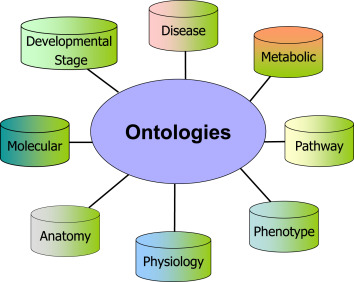An ontologically definition is the concept of “that which is” in an extended sense. This concept is often discussed in the context of philosophy and theology. It is an approach to the study of the nature of reality, the nature of being and the purpose of existence.
Formal ontology
Formal ontologies are an important tool for representing and organizing information. They allow for a high-level generalization of information, and they offer a simplified language for describing the world. While formal ontologies are often based on formal logic, they can be used in a variety of ways.
Formal ontologies aim to represent the world in a way that applies to anyone, and they use a variety of approaches. Some formal ontologies are a simple representational framework, while others are more systematic and seek to provide a formal theory for all aspects of the world. There are three types of formal ontologies: systematic ontologies, descriptive ontologies, and systemic ontologies.
Systematic formal ontologies are the most ambitious. They typically try to describe all the entities of a particular kind. This can include properties, sets, and individuals. Generally, these ontologies have a primary subject and subclasses, and they can take inspiration from physical sciences, including the paradigm of simplicity. These ontologies are most often based on notions of reduction.
Flat ontologies
Flat ontologies are a set of theoretical perspectives within human geography that are increasingly being utilised. These approaches are aimed at examining the nature of relations in the world and how these are conceived. They can be seen as antidotes to the violent forms of distinction that have been used historically to justify political violence against non-humans.
The concept of flat ontology is based on the idea that entities have an inherent interconnectedness. A flat ontology is a form of ontology that differs from other ontology approaches by considering the difference between entities in terms of degree rather than their vertical classification.
An example of a flat ontology approach is Manuel DeLanda’s conception of a flat ontology. DeLanda believed that all objects should be treated equally. This was in contrast to the realism of Albert Einstein and the positivism of Karl Popper.
Another aspect of a flat ontology is the understanding of differentiating entities by means of a process of de-determination. This is done by re-articulating and re-explaining how an entity is related to other entities.
Quinean approach to meta-ontology
Meta-ontology is a discipline that studies ontology. It is concerned with the explication and clarification of ontology, and with its purpose and goal. There are many different approaches to meta-ontology. However, there are two main types of approaches to meta-ontology: neo-Aristotelian and Quinean.
Neo-Aristotelian ontology is the view that there are objective answers to the basic questions of ontology. In this approach, there are only three kinds of ontologies: flat ontologies, ordered ontologies, and sorted ontologies. Flat ontologies represent a simple set of entities, whereas ordered ontologies classify entities into distinct ontological categories.
The main difference between the neo-Aristotelian approach and the Quinean approach is in the way they deal with the question of ontological commitment. Neo-Aristotelianism does not provide an adequate alternative to the Quinean approach.
Quine’s approach to meta-ontology is based on a first-order logic criterion. This criterion is related to the entailment approach to ontological commitment. On the entailment approach, a theory commits to a theory if it is bound to a set of predicates.
Meaning of ‘that which is’ in various extended senses
There is a very clear difference between the meaning of ‘that which is’ in various extended senses. The difference is not only in the meaning but also in the extension of the term. For example, the term Cary Grant has the same extension as Archie Leach, but both are related to the same term. Similarly, ‘cat’ and ‘cats’ have the same extension and referring expression, but ‘cat’ is more specific.
In addition to the direct extension of the term, the meaning of ‘that which is’ is also affected by the context. For example, the word ‘cat’ is more commonly used to refer to a category of animal, whereas the same word can also be used to refer to a cat, although this distinction is not as clear. However, many English speakers do use the same term to describe a cat.
The term ‘that which is’ can also be defined as the process of collecting information about the world. This is the same way that the brain works. It receives signals from the five human senses – smell, touch, taste, sight, and hearing – and interprets them, causing the body to respond chemically and physically.
